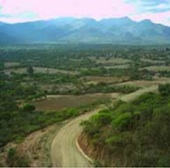Building Capacity in Vulnerable Mountain Regions


Impacts of climate change on the ecosystems of semi-arid mountainous regions can have serious consequences on local livelihoods. Climate change effects can also provoke an emergence and expansion of vector transmissible diseases such as Malaria and Chagas. To evaluate this situation and find possible preventive measures, two vulnerable semi-arid mountainous regions in Bolivia were selected as case studies: the Lake Titicaca region and the region of Vallegrande. The NCAP project focused mainly on the assessment of food security and human health in both regions.
A social learning approach was taken in this case study. GIS tools for multi-criteria analysis were used, as well as participatory tools for evaluation and planning. The process included the active participation of local stakeholders through consultation, questionnaires, interviews, workshops and focus groups.
Contact
Mr. Bill Dougherty: [email protected]
(0) Comments
There is no content